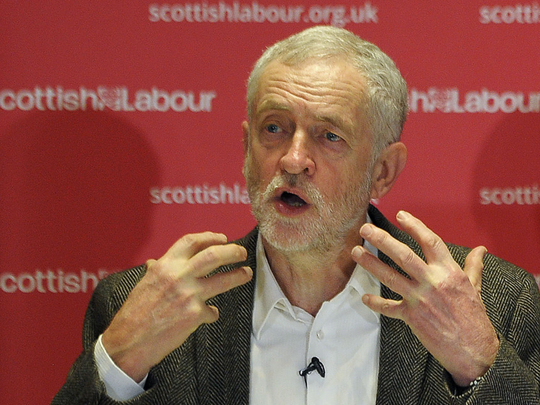
First, let’s hear it for the 47, Labour’s Brexit refuseniks, a fifth of the parliamentary party, who defied instructions to vote on Wednesday with the Tories to set in motion the process of leaving the European Union (EU). Diane Abbott, the shadow home secretary, was away sick and did not vote. It may be that no get-well-soon card is needed, but the decision to send out P45s to the frontbenchers who have yet to resign might wisely be delayed.
These refuseniks have challenged the belief that a referendum result is in some way irreversible writ.
As many explained in careful and heart-felt speeches during the debate, they acted for a mix of reasons. But at the core of them all was the decision to follow their conviction and their conscience. For a significant minority with seats in Wales or the Midlands or further north (Labour’s only Scottish MP voted against the bill too), that means confronting the convictions of their constituents. For the Londoners, many of them representing seats where up to three quarters of voters backed Remain, there was a better match of conviction and convenience. All the same, many — young and ambitious — have given up their front bench or shadow cabinet positions to do what they think is right.
For the Labour leadership, and in particular one as loosely moored to the parliamentary Labour party as Jeremy Corbyn and John McDonnell, this is a three-dimensional, multicoloured nightmare. But that’s what the job is for. It’s not meant to be all motorcades and ecstatic crowds, nor even street protests and chants. It’s hard.
Like the idea of a referendum itself, it is seductive to argue that this battle was lost months ago, sometime around the moment that the idea of the irreversible authority of a plebiscite had hardened like quick-set concrete into a new feature of Britain’s over-malleable constitution. For a party that aspires to lead a movement, it is not helpful to appear to obstruct the will of the people.
That is why the Corbyn team, which between its members has clocked up rebellions beyond number against official authority, decided it had to impose an implausible and unsustainable three-line whip demanding MPs vote against the second reading. Not for them the risk of lining up with the judges as defenders of the constitution, and end up being branded in the Daily Mail as enemies of the people.
An alternative course was urged on them by some senior backbenchers. The party might have tabled a “reasoned amendment”, perhaps refusing a second reading until a white paper was published (not unreasonable, and what the Scottish Nationalist Party (SNP) in fact did do, backed by 33 Labour MPs). If that was voted down, the party could then have abstained on the second-reading vote with a solid justification.
The trouble with that course of action, as Corbyn understands very well, is that it is too nuanced to sell outside Westminster. Back in 2015, that was the device used to get round the party’s conflicted response to the welfare cap, introduced as a deliberately divisive ploy by the Tories straight after the last election. The reasoned amendment was an escape route backed by most of the mainstream candidates who stood in the first leadership contest, and they were duly taunted by Corbyn who had voted against the bill.
The lie that a binary referendum is the beginning and end of a process that sets the country on an irrevocable course must be challenged
But Wednesday night’s whipped vote in favour of a decision that many MPs — of all parties — oppose to the roots of their being is on another scale entirely. Labour MPs have now given their backing to a measure that many of them believe will make life for their constituents poorer and harder, that they fear will seize up the economy, divide communities and force the United Kingdom into a humiliating intimacy with leaders it would be infinitely preferable to hold at arm’s length. Their names are there, on the division lists, in perpetuity.
The optimists say that the thing to do is bank that, move on, turn the page and new opportunities will open up. The next big vote comes in a week’s time, on third reading.
The party is much more united about what should happen next in the Brexit process than it was over the core question of how to treat the Article 50 bill. So now it has to get out and fight, with two objectives in mind. MPs need to be able to have a plausible conversation with their voters about the cost of leaving the EU for them and their families and their jobs and the services on which they rely. Equipped with the information and arguments, and maybe alliances with the European left, they are in the best place to achieve the least harmful departure that can be engineered.
All of the above is reasonable. But none of it will work without a much bigger and braver fight, a fight that will have to go to the heart of the enemy, the Leave campaigners’ mouthpieces in the media. The lie that a binary referendum is the beginning and end of a process that sets the country on an irrevocable course must be challenged, and challenged again, for what it is: An abuse of parliamentary democracy.
— Guardian News and Media Limited
Anne Perkins is a leader writer, lobby correspondent and feature writer.









